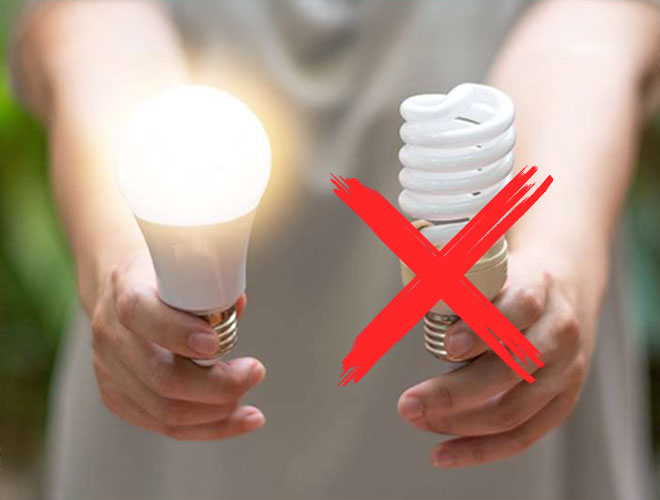The new law will take effect on January 1, 2026

Honolulu, Hawaii – Hawaii Energy, the state’s energy conservation program, would like to remind the business community of an important new law aimed at protecting the environment and promoting cost-effective energy solutions. Act 225 (SLH 2023), also known as the Hawai‘i Clean Lighting Standards Act, will phase out the sale of linear fluorescent lamps, which are common in many commercial facilities, in favor of energy-efficient Light-Emitting Diodes (LEDs), starting January 1, 2026.
“At Hawaii Energy, we are dedicated to ensuring that businesses are well-informed about this new law and its benefits. We commend the Hawaii State Legislature and Governor Green for their leadership in passing this significant law, which moves Hawaii closer to achieving its 100 percent renewable energy goals,” said Caroline Carl, executive director of Hawaii Energy. “Switching to LEDs not only supports our state’s sustainability objectives, but also delivers long-term savings for consumers, reduces greenhouse gas emissions, and eliminates hazardous mercury from our environment.”
Beginning January 1, 2026, Hawaii will ban the sale of pin-base compact fluorescent lamps and linear fluorescent lamps. Linear fluorescent lamps are defined as low-pressure, mercury-containing, electric-discharge light sources with two bases (end caps), including single-pin, two-pin, and recessed double contact. This includes all tube diameters.
Hawaii’s move to LEDs will bring numerous benefits including:
- Environmental Protection: LEDs are mercury-free, helping to reduce toxic pollutants in Hawaii’s air, water, and landfills.
- Energy Efficiency: LEDs are up to 80% more energy-efficient than fluorescent bulbs, significantly cutting energy consumption.
- Cost Savings: Switching to LEDs can save businesses and residents up to 90% on lighting energy costs over time. Hawaii taxpayers are expected to save $382 million in electric bills by 2050.
- Long Lifespan: LEDs last three to five times longer than fluorescent bulbs, reducing replacement costs and waste.
Hawaii Energy offers rebates and resources to assist businesses and residents in making the switch to LED lighting:
- Instant Rebates for businesses: Available at participating lighting distributors, including Graybar, Grainger, Alpha Electric, and more. No forms or applications are required—simply purchase qualified ENERGY STAR® LED bulbs to start saving.
- Energy Advantage small business lighting upgrade program: Small businesses, nonprofits and restaurants that are 5,000 sq. ft. or below in size are eligible to receive facility-wide lighting upgrades for significantly subsidized rates.
- Guidance for Businesses: Hawaii Energy’s Clean Energy Ally contractors can provide expert support for businesses transitioning to energy-efficient lighting.
“While there may be an initial upfront cost associated with switching to LED lighting, the long-term savings and environmental benefits far outweigh the investment,” added Carl. “Hawaii Energy is here to make the process as seamless and cost-effective as possible for our community by offering some of the best rebates and highest incentives to help businesses and residents make the switch today.”
Residential compact fluorescent lamps have also been phased out and banned from sale effective January 1, 2025. Businesses and residents can visit HawaiiEnergy.com for more information, list of participating retailers, and details on available rebates and resources.